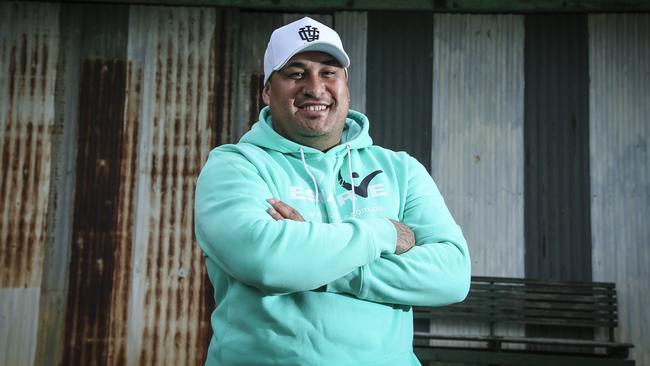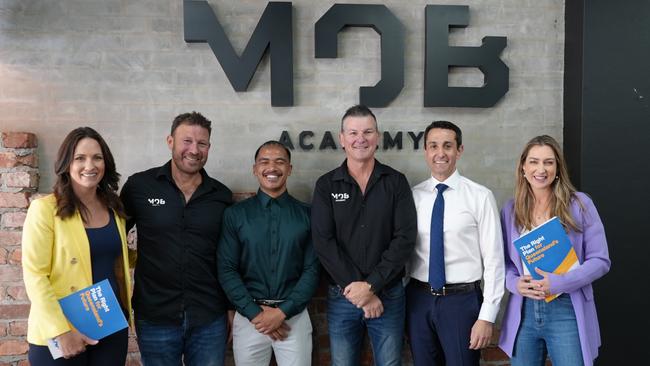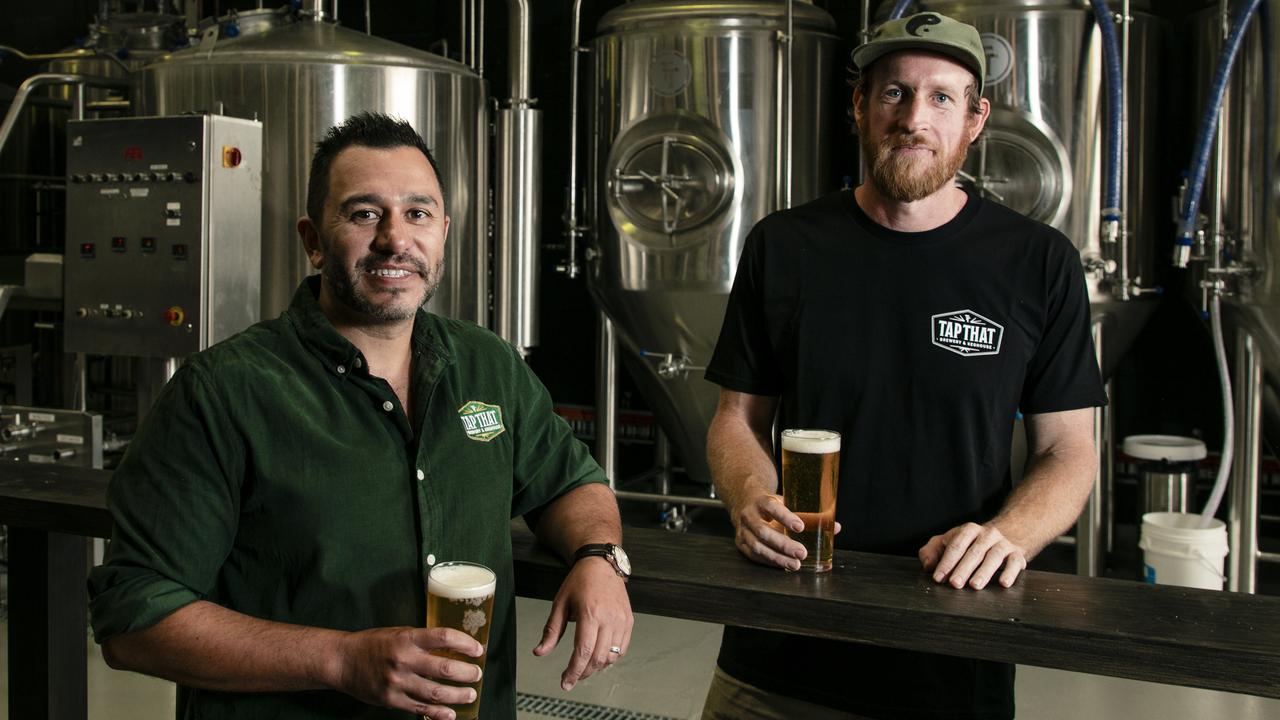What you may not know about youth crime
It’s the biggest issue in the state election. But behind the headlines there is a simple reality about youth crime – there is a proven solution.

Gold Coast
Don't miss out on the headlines from Gold Coast. Followed categories will be added to My News.
This column believes two core things about youth crime. They are beliefs formed from a number of years meeting – for the purpose of news stories – police, youth justice workers, and the offenders themselves. The first view this column has formed would no doubt be a welcome one: youth crime is a solvable problem.
The second view, less so: The answer does not lie behind prison walls. Let me explain.
I will never forget an interview I conducted in August last year with Joseph Te Puni-Fromont.
Joe is the founder of ESuarve, a group dedicated to helping disengaged young people, most who have had some serious brushes with the law, get back on the straight and narrow.
At one point I asked how he and his team managed to get kids who stole from people, who would not listen to parents, teachers or police, who had completely disengaged from school, to turn up every day to the program.
Joe pointed to a fridge in the corner. They came for the food.

That was the lure that kept them coming back, and gave Joe and his team the chance to work their magic, cajoling young people into a tough love course that not just leaves them with a qualification valued by employers, but changes their perspective on life.
Turns them, with remarkable rates of success, from disengaged youths causing society untold trouble, to young people ready to contribute to their community.
“In the last four years we’ve managed to help over 260 young people. We’ve always spoken about the outcomes we’ve gotten, but it’s over 90 per cent employment success rate,” Te Puni-Fromont said this week.
“Recently we had an evaluation conducted by the Queensland Police Service. They tracked the criminal history 12 months prior to this program and 12 months after. It showed 1 79 per cent decrease in recidivism rates. Again it showed a close to 90 per cent employment outcome rate or back to school.
“And more importantly two per cent, or one young person, was reincarcerated from that group that was followed.”
Just think about that figure of 260 young people helped. To be clear, these were all young people who had either committed crimes or viewed as being at very high risk of ending up on that road.
The overwhelming majority, instead, are now contributing positively to society.
That’s not just 260 young people helped. That’s likely hundreds more, maybe even thousands, who have not had their cars stolen, or their homes broken into, or worse.
The outcome we all say we want.

It’s a different kind of program, but there are enormous similarities in the outcomes being achieved at the Men Of Business Academy, a special assistance school in Southport with 200 students.
“We create a place of belonging and hope where real life skills is the intervention,” founder Marco Renai said on Sunday.
“When they leave at the end of their schooling career, they’ve got their qualifications, they’ve got their social and emotional and mental health, they’ve got their driver’s licences, they’ve got all the skills they need to support or be supported in life.
“ ... I actually look at it more than just a school, I actually look at it like a family, and we’re part of these boys every step of the way no matter what’s going on in their life, they can always come back and find us for jobs, food, mental health support, and that’s how as a community and a tribe we can truly make a difference.
“That to me is early intervention. And that to me is truly the difference and the cycle we’re breaking.
“ ... Every child that ends up in the youth justice system is costing us $680,000 a year. If we save ten kids from entering that system that’s $6.8 million a year. Now we’ve got 200 of those boys. And we’re truly making a difference.”
Mr Renai was speaking after LNP leader David Crisafulli pledged to spend $40 million on four such schools across Queensland if elected – with MOB to be one of the major beneficiaries of the funds.
Mr Te Puni-Fromont was speaking after Premier Steven Miles promised $4 million would go to ESuarve if Labor is re-elected – giving it funding certainty for the next four years. Mr Crisafulli is also known to be a big supporter of ESuarve’s work.
Youth crime is shaping up as the biggest issue of the state election. There will be much talk which will boil down to finding new means of locking young people up.
Which is all fair enough – nobody will tell you there should not be consequences for actions. The rights of victims must also be paramount.
But it is extremely heartening to see that both sides of politics appear to clearly understand that such measures alone cannot solve this problem.
That prevention is better than cure, and the real solution to the youth crime crisis lies well beyond high prison walls.
Originally published as What you may not know about youth crime




